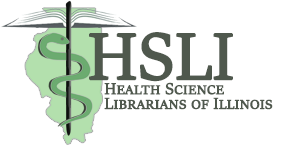Two weeks ago, House Bill 2689–the Internet Screening in Public Libraries Act–was introduced in the Illinois General Assembly. The Act would require that all public libraries in the state put into place a “technology protection measure”, such as a filter, that would prevent library users from viewing material that could be construed as obscene or pornographic (particularly if such material is harmful to minors). Libraries that do not currently have filtering software would have to pay for it on their own, which would put pressure on less-affluent libraries that are already stretched to the limit financially. Also, although libraries would be able to remove the filtering restrictions at a patron’s request, the guidelines for what constitutes “legitimate research” are very vague.
This past Monday, the bill was assigned to the Judiciary-Civil Committee. The Illinois Library Association is asking for a concerted effort to stop this legislation at the committee stage, due to the far-reaching implications if it were to become law, including preventing public libraries from fulfilling one of their main missions–making information as broadly accessible to the public as possible. The ILA has identified the following individuals as “key players” in determining whether the legislation moves past the committee stage.
Representative Ron Sandack (Republican, 81st District–Downers Grove)
Representative Pamela Reaves-Harris (Democrat, 10th District–Chicago)
Representative Andre M. Thapedi (Democrat, 32nd District–Chicago)
Representative Dwight Kay (Republican, 112th District–Edwardsville)
Representative John E. Bradley (Democrat, 117th District–Marion)
To view their contact information, go here.
To track the current status of the legislation, click here.
For more background information on the impact and effectiveness of Internet filters in libraries, Internet Filters: A Public Policy Report is a good source. The report, an updated version of which was released in 2006, discusses the types of terms that are most likely to be filtered. Among those that would likely be the most relevant to Internet searches by patrons in hospital and medical libraries are terms related to substance abuse or human sexuality (including gay issues).
The report can be downloaded here.
